Air Conditioning 101: Understanding Modern Day Comfort
Air conditioning systems are a crucial part of our daily lives, and have been for almost a century now. In 1902, the first modern air conditioning system was invented, but it wasn’t until the 1920s that it became a household item. Nowadays, we take air conditioning for granted, but it’s important to know how it works. Understanding the history of air conditioning systems allows us to appreciate how far they’ve come and how much they’ve impacted our lives. Moreover, it can help us better comprehend how to use them effectively and efficiently. Knowing how air conditioning units operate can save money on energy costs and lessen the need for repairs.
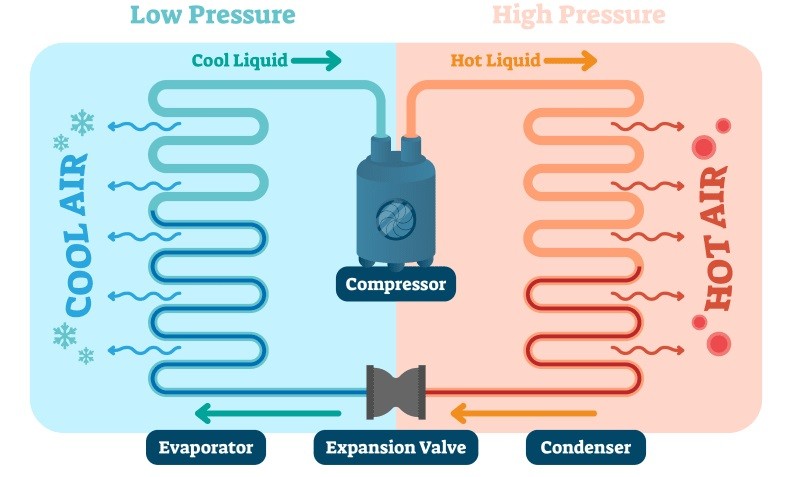
How Does An Air Conditioner Work?
Dealing with the sweltering heat of summer can be unbearable, but thankfully we have air conditioners to keep us cool and comfortable. Have you ever wondered how an air conditioner works? It’s a fascinating process that involves several key components working together.
First, there’s the compressor which compresses the refrigerant gas and turns it into a high-pressure, high-temperature gas. Next, the condenser helps to dissipate the heat from the gas, cooling it down so that it can become a liquid. This liquid travels through the expansion valve, where it becomes a low-pressure, low-temperature gas, before finally entering the evaporator. The evaporator absorbs heat from the surrounding air, cooling it down, and releasing it back into the room through a blower. And that’s how an air conditioner works! Next time you’re enjoying the cool air, you can appreciate the complex process that’s keeping you comfortable.
How Does The Air Conditioner In My Home Work?
Home comfort is one of the top priorities of homeowners, and with the summer heat on the rise, air conditioning systems have become essential. There are two main types of home air conditioning systems, the central and the split AC. A central AC system is an all-in-one unit that cools the entire house, while a split AC system has separate indoor and outdoor units for each room or area that needs to be cooled. Central AC is more common in larger homes or buildings, while the split AC is more used in smaller homes, older homes, and even apartments. Central air conditioning systems are generally more efficient in cooling larger spaces, but split air conditioning systems offer more flexibility in cooling only the areas that are needed. Knowing the differences between these two systems can help homeowners make the best decision when it comes to their home air conditioning needs.
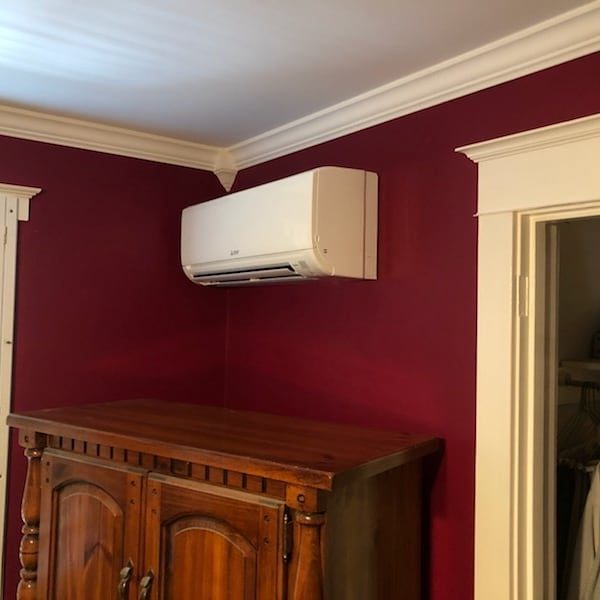
What is Central Air Conditioning?
When it comes to cooling our homes, central air conditioning is often the most popular option for homeowners. Unlike window or portable air conditioning units, which only cool a single room, central air conditioning cools the entire home through a network of ducts and vents. A central air conditioning system typically includes an outdoor unit that houses the compressor and condenser, as well as an indoor unit that contains the evaporator and air handler.
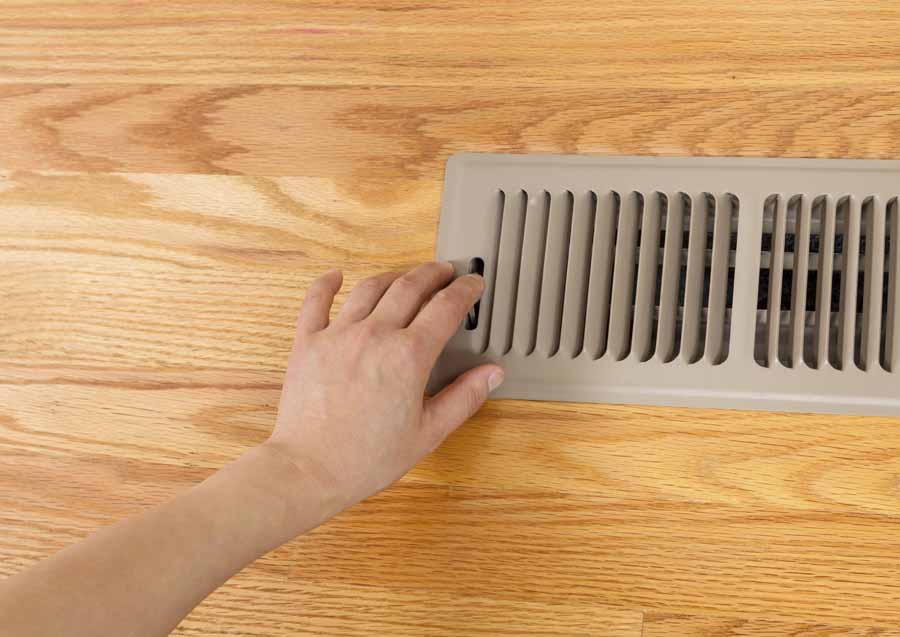
How Does A Central Air System Work?
Central air conditioning is a blessing we can’t imagine living without, especially during the hot season. The system, unlike room air conditioners, cools the entire house. Central air conditioning uses refrigerants like Freon, which move between the evaporator coils inside the house and the condenser located outside. The air in your house passes over the evaporator coils, where it cools and then circulates through your home’s duct system. Meanwhile, the refrigerant absorbs the heat and pushes it outside where the condenser blows it away with a fan. The process repeats until your desired temperature is reached. Overall, central air conditioning is a complex and efficient system that works wonders in keeping our homes comfortable and cool.
Types of Home Air Conditioning Systems
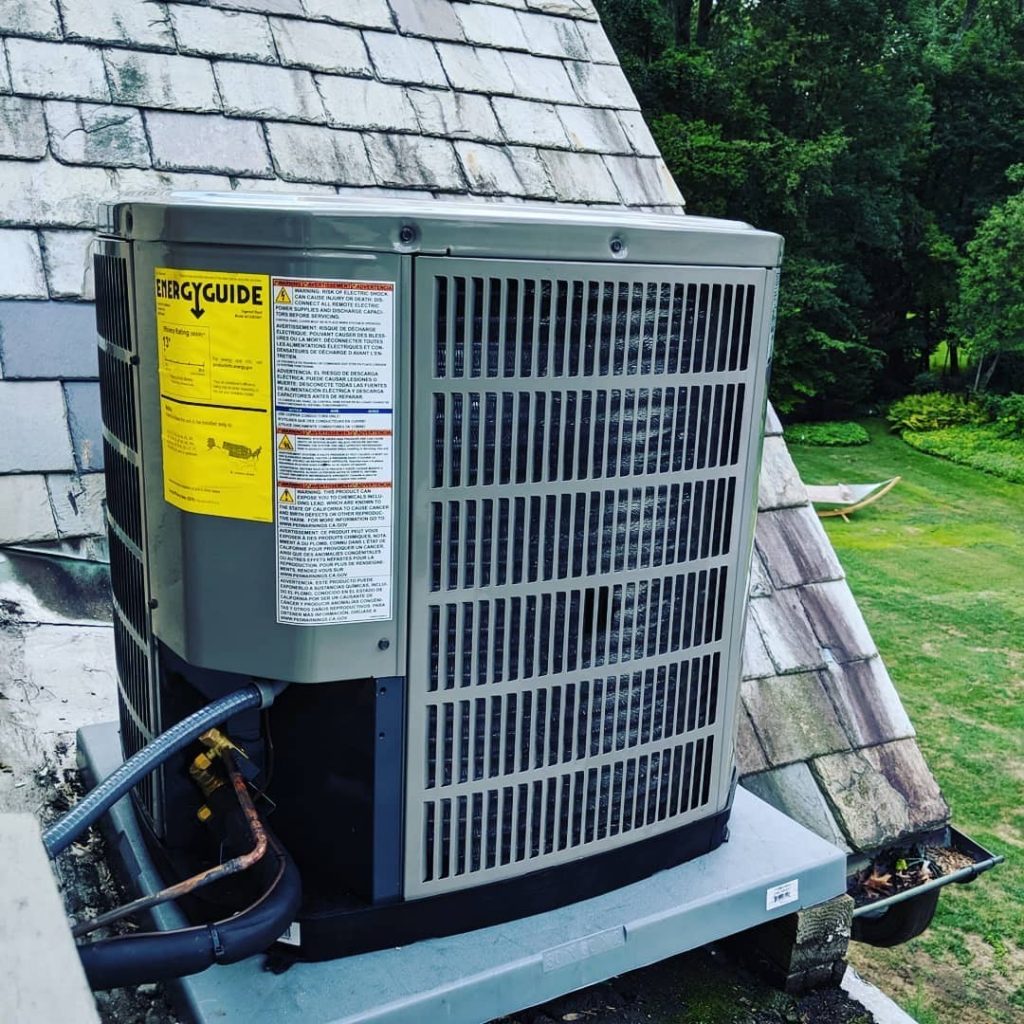
Package or Central Air Conditioner
What Is A Split System?
Split air conditioning systems, or ductless air conditioners, have an indoor and outdoor cabinet. The indoor holds the condenser and compressor. The outdoor cabinet contains the evaporator and sometimes more depending on if your split system doubles as your heating. Rather than ducts, the split system uses pipes to connect the two parts. Refrigerants in the pipes cool the air as it cycles through. To switch to this system is more expensive, but this system is known for being very efficient in cooling large areas quickly.
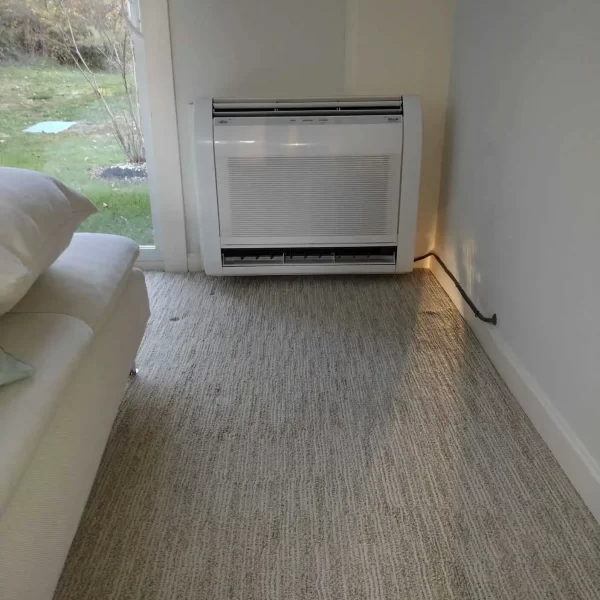
These systems are a game-changer for both residential and commercial spaces. Unlike central air conditioning, ductless mini splits offer individual zoning control, which means you can set different temperatures for each room or area. This precise control allows you to save money on energy bills. Plus, as their name suggests, they have no ductwork, which means no heat loss or air leaks. However, what really sets them apart is their simplicity. Installation is easy and typically only requires only a small hole to connect the indoor and outdoor units. This is why ductless mini splits are a perfect air conditioning option for older homes or buildings that lack ductwork. If you’re looking for an efficient, customizable, and easy-to-install air conditioning solution, ductless mini splits simply can’t be beat.
Knowing about your air conditioner and how it works is important for the smart homeowner whether that is towards maintenance or purchasing. During the hottest of summer days, nothing is nicer than entering your comfortably cooled home, and your air conditioner is to thank for that. Make sure your taking good care of it so you are never left without your home oasis during the summer.



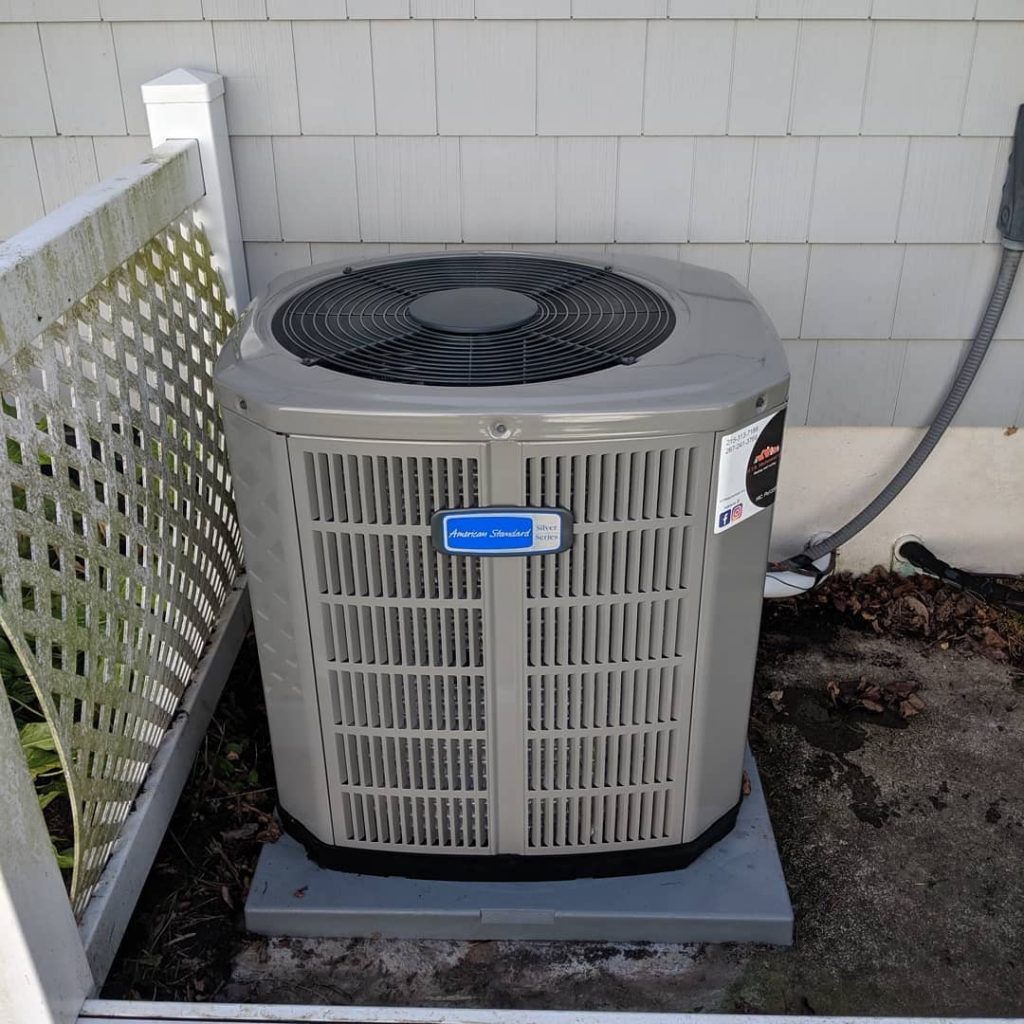
Get Quality Local Air Conditioning Services throughout Bucks and Montgomery County!
AC Repairs, Installation, & Maintainence
H.T.R. Mechanical LLC, is your local licensed and insured heating and air conditioning experts. We offer emergency HVAC services alongside our regular maintenance and repair services. If your heating or air conditioning needs attention be sure to sure to contact us for prompt and professional service!
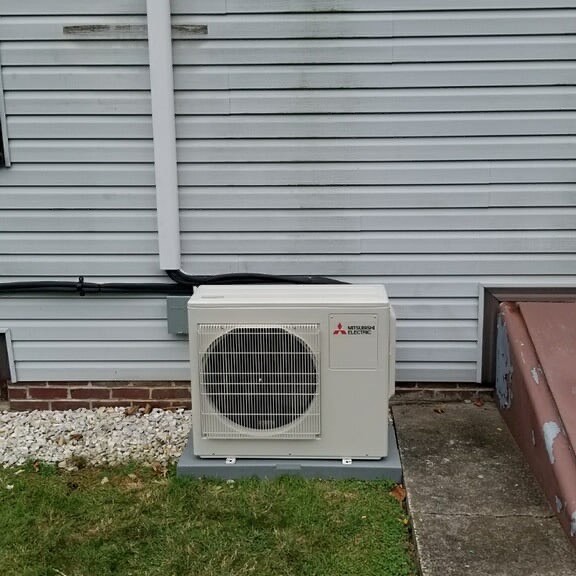
Quality HVAC Services for Bucks County
Want to see examples of our work? Want to stay up-to-date with HVAC services in Bucks County? Feel free to follow us on social media to get the latest updates, special offers and expert advice. We also post articles with tips, advice and insider looks about HVAC systems. Click the links below to give them a read! We add new articles often so there will always be new things to learn. We look forward to seeing you on the web!

